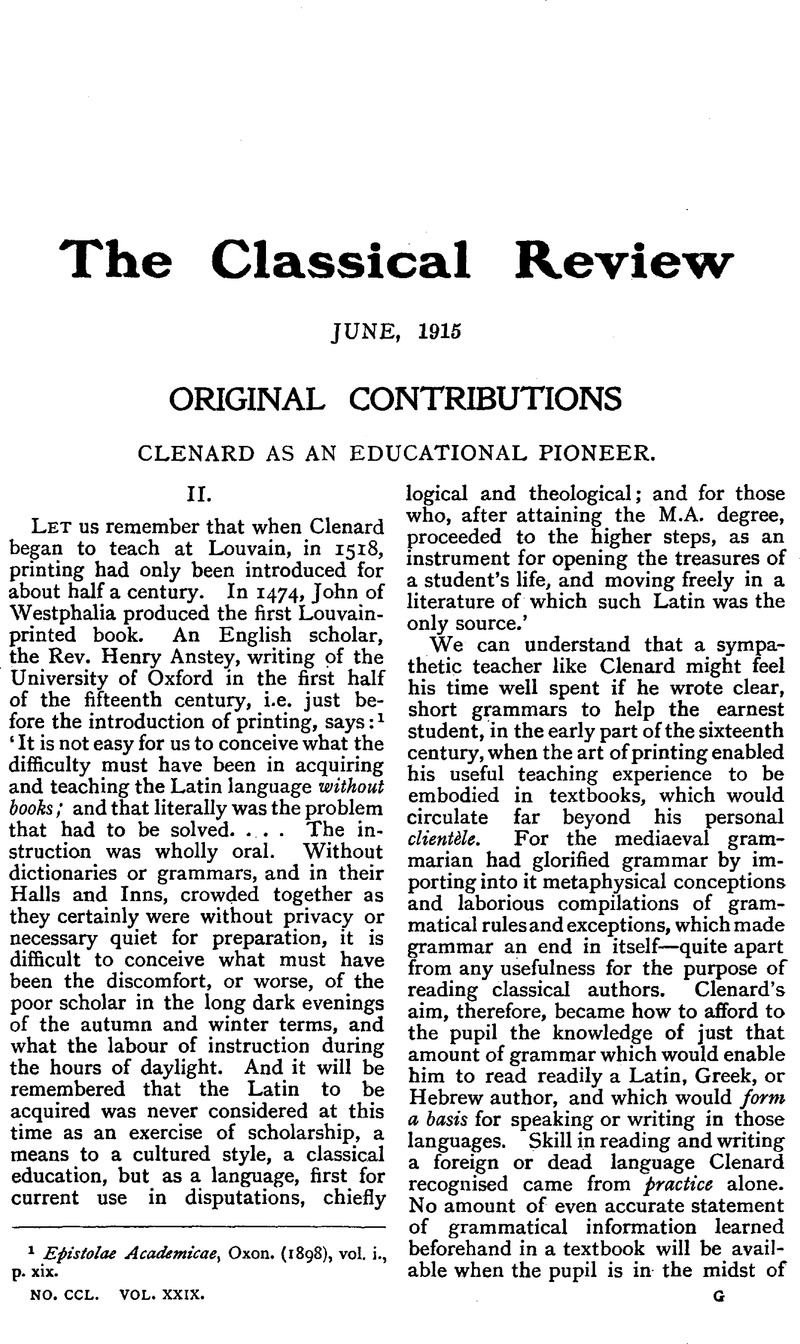No CrossRef data available.
Published online by Cambridge University Press: 27 October 2009

page 97 note 1 Epistolae Academicae, Oxon. (1898), vol. i., p. xix.Google Scholar
page 98 note 1 See Nève, F., La Renaissance des Lettres en Belgique, pp. 231–232.Google Scholar
page 98 note 2 J. L. Vives, De Tradendis Disciilims, Bk. III., chap. i.
page 99 note 1 It may be noted that Vives gives his explanation of the fact that syntax is so cursorily treated by previous writers, even amongst the Greeks themselves. He says ‘the Greek language was well spoken for a longer time by the people than was the case with Latin, so that there was less need for scrutiny and rules’ (De Tradendis Disciplinis, Book III., chap. vii.).
page 99 note 2 Introduction to the Literature of Europe (1855 edition), vol. i., p. 336.
page 99 note 3 Étude sur la Vie et les Travaux de Nicolas Clénard. Chauvin, Par Victor et Alphonse Roersch. Bruxelles, 1900. Pp. 60, 61. This book is indispensable for a comprehensive and detailed study of Clenard.Google Scholar
page 100 note 1 ibid., pp. 69–70.